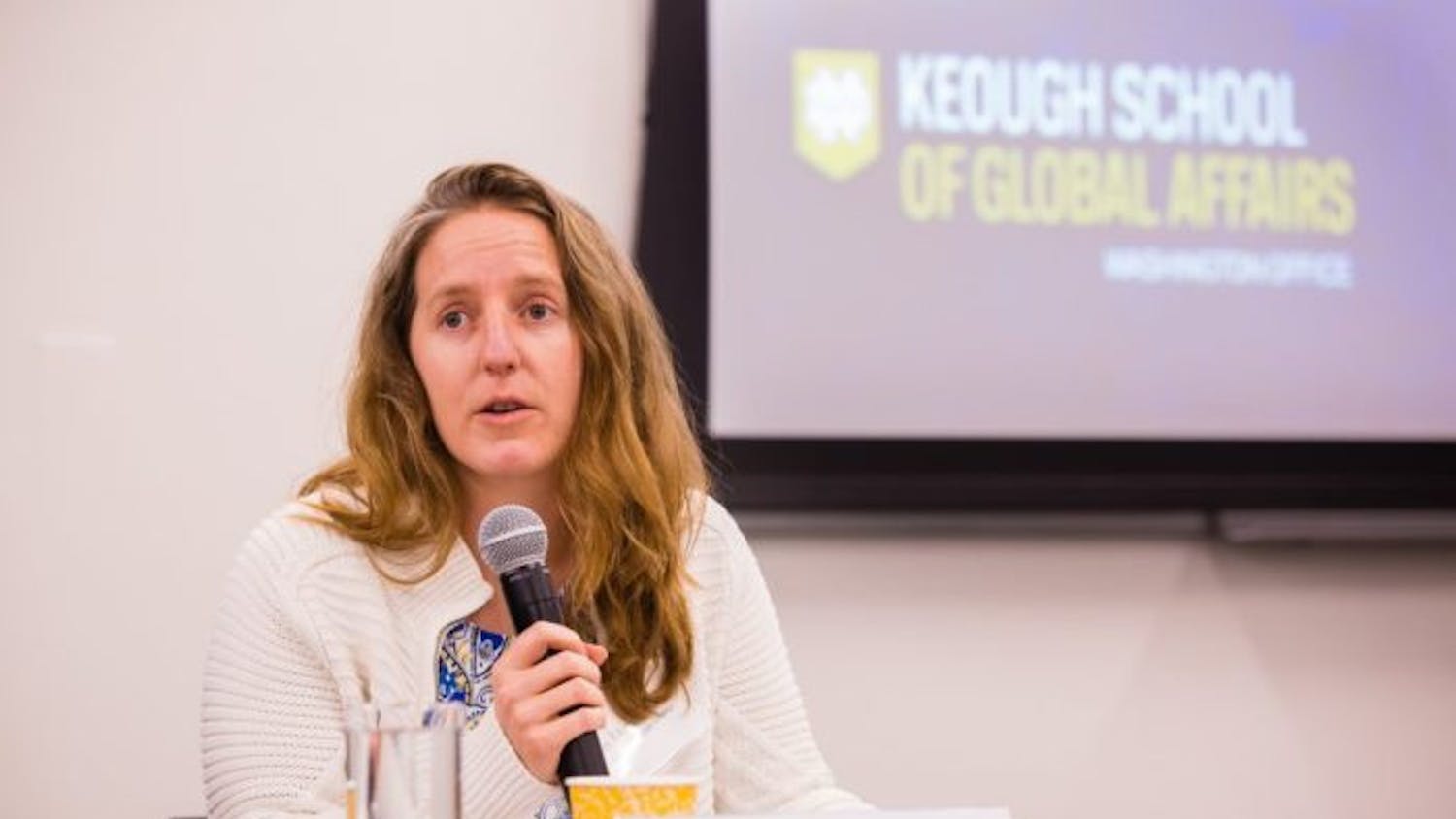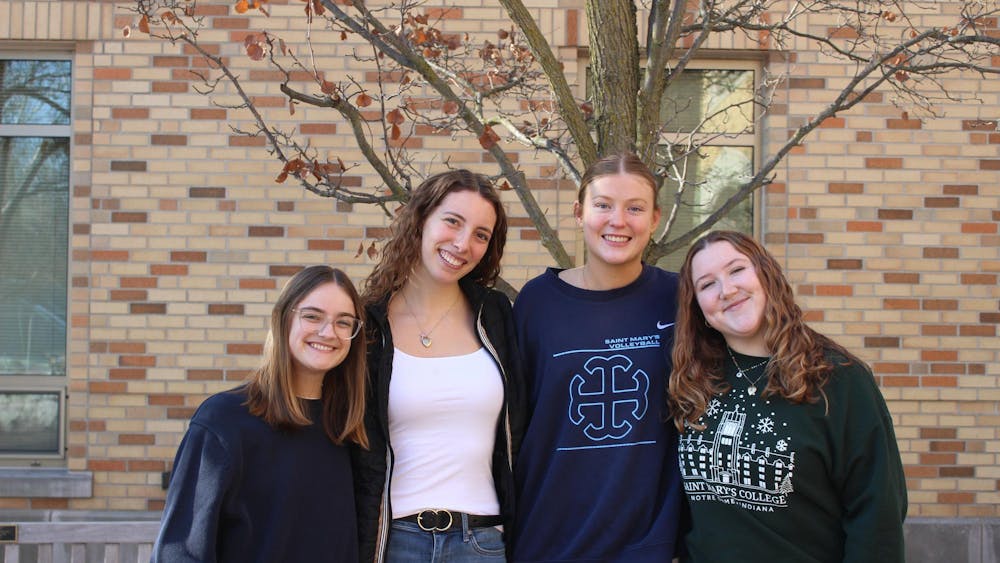Increasingly people, governments and corporations must cope with the impact of climate extremes, Professor Jessica McManus Warnell said.
According to McManus Warnell, an affiliated faculty member of the ND Environmental Change Initiative which houses the Notre Dame Global Adaptation Initiative (ND-GAIN). The organization aims to help private and public sectors prioritize climate adaptation, ultimately lowering risk and enhancing readiness.
ND-GAIN is a consortium of researchers dedicated to examining vulnerability and adaptation data globally and within the United States. The initiative works to enhance the world’s understanding of adaptation through knowledge, products and services that inform public and private actions, and investments in vulnerable communities, McManus Warnell said.
However, sustainability metrics are a separate issue. Notre Dame is a member of the Association for the Advancement of Sustainability in Higher Education and tracks campus sustainability through its STARS program.
Danielle Wood, the project director of ND-GAIN, added that ND-GAIN is “an open-source index,” meaning it can “help private and public sectors prioritize investments for climate adaptation to better lower risk and enhance readiness.”
McManus Warnell said she introduces the index to students in her business ethics and sustainability classes as “an example of a science-based tool for communicating climate change data to key stakeholders including communities, governments and businesses.”
Classes in which she has shared the index with students include several offered through the management department at the Mendoza College of Business, like Foundations of Ethical Behavior, Sustainable Communities and Global Business and Climate, Economics and Business Ethics.
ND-GAIN is “one of the first and still one of the few international climate indices,” Wood said. “It is used by a variety of stakeholders, from federal agencies around the world to NGOs like the Global Center on Adaptation out of the Netherlands and financial entities like Morgan Stanley. It gathers 45 core indicators to measure vulnerability and readiness and allows users to compare countries for risk and readiness.”
McManus Warnell said she believes ND-GAIN is an important program that addresses a pertinent topic. As the impacts of a changing climate impact communities around the world, “stakeholders and decision makers need robust data upon which to base policy development, investment decisions and other public and private actions.”
The decline of ND-GAIN leader scores is driven by the index’s measurement of climate readiness, which consists of economic, governance and social components. At the same time, “many of the highest-ranked countries saw an increase in vulnerability to the effects of climate change,” McManus Warnell said.
ND-GAIN measures vulnerability across six components — including food, water, health, human habitat, infrastructure and ecosystem services — for sensitivity, exposure and adaptive capacity to climate risks.
There are similarities among leaderboard countries, Wood said.
“Many do face moderate exposure to climate change, but they have good capacities to deal with the potential climate risks,” she said. “In general, they are also better prepared for natural disasters and practice good governance, which is essential to adaptation.”
At the same time, Wood said the drop of ND-GAIN scores among the highest-ranked countries should serve as a critical reminder.
“The decline of the top-ranked countries underscores that no country is immune to potentially extreme impacts of climate change,” she said.
In McManus Warnell’s courses, she introduces ND-GAIN as the class examines issues of adaptation to climate change.
“Adaptation, or the process through which humans and human systems adjust to climate and its effects to both minimize harm and identify benefits, depends on good data,” she said. “Government officials, business leaders and other decision-makers can't determine how to respond if they can't measure what's happening and what's coming. ND-GAIN's vulnerability and adaptive capacity data is informing decision-makers around the world, and it is a powerful example for students of how data can inform decision-making. Students will, of course, soon be the decision-makers in these leadership roles.”
On Notre Dame's campus, McManus Warnell said the University has the Office of Sustainability along with other initiatives such as a standing committee representing students, faculty and administrators in operations and from functional units across the campus who work on Notre Dame's sustainability strategies.
“Communities can use ND-GAIN data to determine their specific vulnerabilities to climate impacts, to understand readiness and to inform decisions about their adaptation initiatives,” McManus Warnell said. “Businesses can use ND-GAIN data to identify where and how to invest resources, determine new opportunities and respond to specific needs of communities around the world.”
Contact Maxwell Feldmann at mfeldma3@nd.edu









